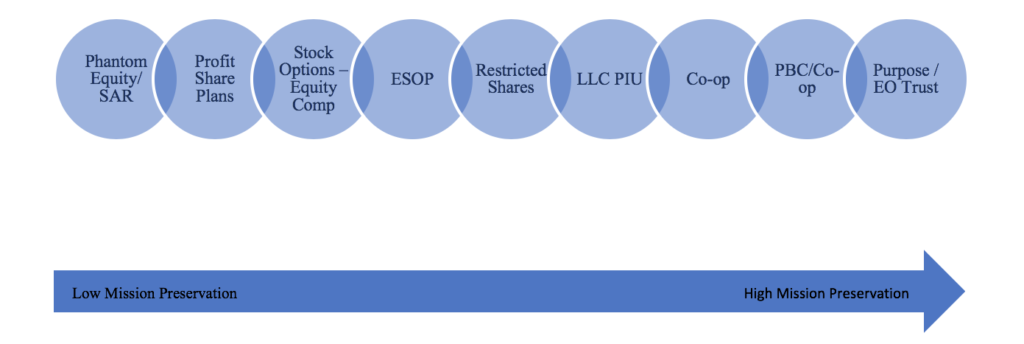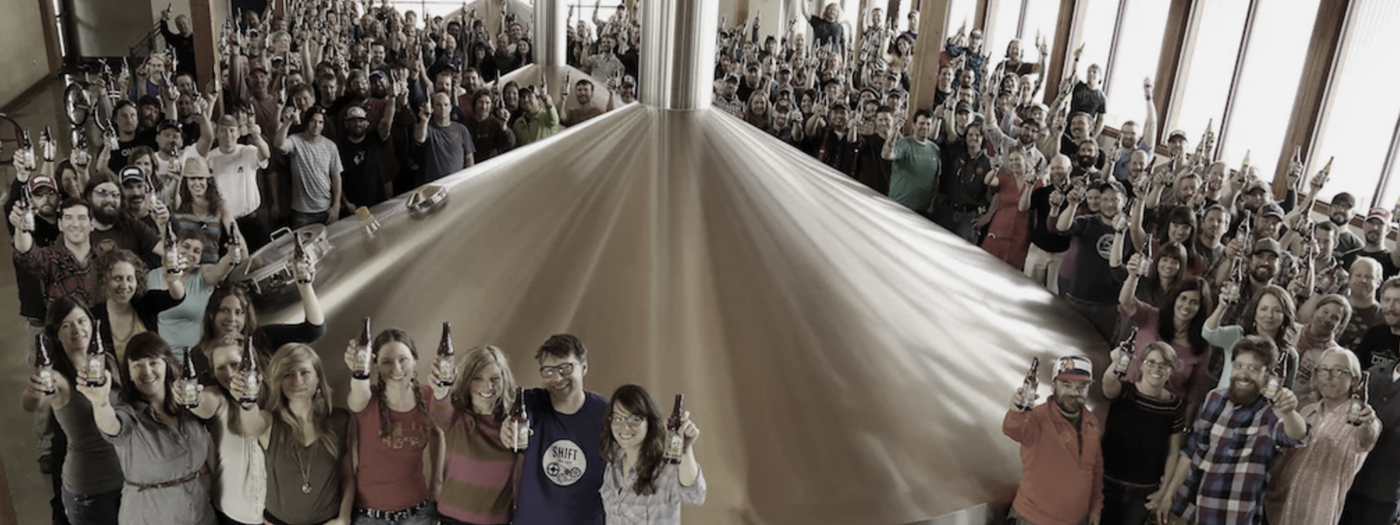When it comes to recent news of New Belgium decision to sell the firm to Kirin’s Lion Little World Beverages, we have the following to be proud of and thankful for:
- The overwhelming balance of value created by New Belgium over its entire existence served to benefit past and current employee owners.
- Several hundred mission-driven, socially and environmentally conscious employee owners who benefit from the proceeds of this sale walk away with significant capital assets they can reinvest in new start-ups, some of which will hopefully be employee owned.
- If New Belgium’s sale inspires a net increase in business conversions to employee ownership, even if because of its sale, then it will have been worth losing New Belgium to corporate ownership.
The sale highlights the vitally significant differences in employee ownership structures; some, like the ESOP, are intended more for wealth creation, and others, like the perpetual purpose trust, intended more for perpetual purposeful mission preservation. Here is a graphic that illustrates the continuum of employee ownership structures plotted out according to their capacity and purpose to preserve mission.

Louis Kelso famously told Bill Moyers in 1990 that what this country needs is 200 million or so capitalists. At a time of accelerating wealth and income inequality in the U.S., New Belgium Brewing’s sale demonstrates the capacity of an ESOP-owned firm to distribute wealth more broadly. While smaller slivers of the top echelon of our society hold increasing percentages of the country’s wealth, more than 300 worker-owners of New Belgium Brewing, many still in the prime of their careers, will walk away with six-figure nest eggs.
New Belgium’s success as an employee-owned firm was a source of hope and pride for many of us; however, employee-owned firms are subject to the same market forces that cause companies of all kinds to struggle or fail. To be fair, we have to judge New Belgium’s decision in light of more meta-market dynamics, like aggressive industry consolidation, evolving customer taste, capital markets volatility. That is to say, the fact that New Belgium spent the better part of its existence with more than a majority of its ownership broadly shared for the benefit of its workers is the real victory.
ESOPs are a special breed of employee ownership that serve to benefit past and current employees. Nothing about the ESOP was meant to be perpetual. This sale shows that the ESOP structure worked exactly as it was intended. Had New Belgium’s board declined to sell, the ESOP trust value may have steadily declined in value, stripping employees of the retirement security they had hoped and worked for, and today will enjoy.
Many devotees of employee ownership hold the underlying structures (especially cooperatives) up as models of economic democracy. As such, we ought to celebrate instances of employee self-determination, including the right of employees to cash out and move on. Democracy is a process, not a set of prescribed outcomes.
We ought to celebrate instances of employee self-determination, including the right of employees to cash out and move on.
Businesses, unlike governments and non-profits, exist (at least in part) to generate profit (now, increasingly for stakeholders other than just shareholders). Employee ownership gives employees a say and stake in how the business does this. Businesses, employee owned or not, are not perpetual motion machines. They have life cycles and they operate within a capitalist system (whether we like it or not). Nobody would argue that Sears Roebuck has an inherent right to exist today, notwithstanding its failure to adapt. So too, particular employee-owned firms shall come and go as business cycles ebb and flow. We should only hope that the value created is shared as broadly and equitably as possible.
To hear more from Jason Weiner, check out The Next System podcast on the end of employee ownership at New Belgium.
Jason Wiener is president of Jason Wiener |P.C. The firm provides legal and business consulting services to entrepreneurs building social mission enterprises, including assisting companies that wish to democratize ownership and governance structures.




















